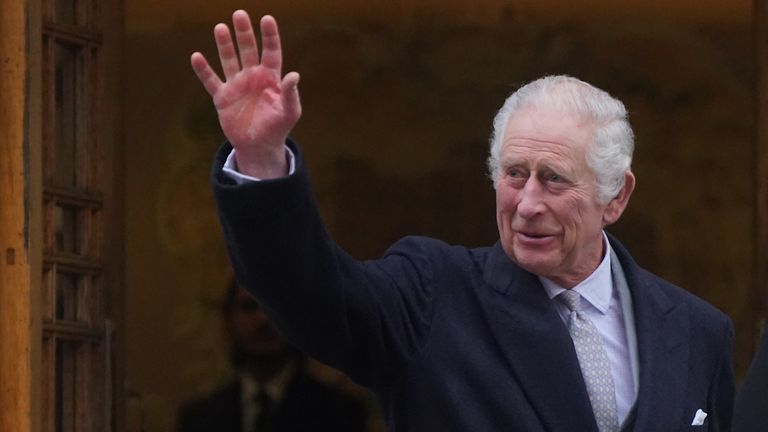From Sunday till the tip of March, greater than 130 operators exterior of London will cost not more than £2 for a single ticket, based on the Division for Transport (DfT).
The cap is supported by £60 million in authorities funding.
In keeping with the DfT, single fares for a three-mile journey exterior of London common round £2.80, however tickets can exceed £5 for lengthy journeys in rural areas.
It’s hoped that the cap will help passengers travelling for schooling, work, or medical appointments through the present cost-of-living disaster.
Among the most cost-effective routes embrace Leeds to Scarborough (£13), Lancaster to Kendall (£12.50), and Plymouth to Exeter (£9.20).
“By saving almost a 3rd off the common single bus ticket and taking two million automobiles off the street, the £2 bus fare cap is a implausible technique to begin the brand new yr,” Transport Secretary Mark Harper mentioned.
Buses are an essential a part of our imaginative and prescient for a clear, environment friendly, and fashionable transportation community that’s inexpensive to all.
That’s the reason we’re investing £60 million to encourage everybody to “Get Round for £2” by taking the bus.
A report launched in July by the strain group Marketing campaign for Higher Transport (CBT) detailed how funding constraints have resulted within the abolition of greater than 1 / 4 of English bus providers within the final decade.
In response to the cap, CBT director of exterior affairs and former Lib Dem transport minister Norman Baker mentioned, “Inexpensive bus journey really is a win-win scenario.”
Capping bus fares on this method will profit struggling households, cut back visitors congestion and carbon emissions, and revitalise dwindling bus providers.
“We imagine that the £2 restrict needs to be prolonged indefinitely.”
The Division for Transport made greater than £2 billion accessible to bus operators to maintain providers operating in England through the coronavirus pandemic.
It said that it’s going to “contemplate future assist” as the present emergency funding settlement expires in March.
Bus minister Richard Holden informed the PA information company that he hopes the fare cap will enhance passenger numbers.
“We’ve been placing in an terrible lot of assist to assist buses by means of Covid and in more moderen months popping out of the pandemic,” he mentioned.
Nonetheless, we have to see a rise in ridership.
“On paid-for fares, we’re again as much as round 80-85%, and on concessionary journey, we’re again as much as round two-thirds.”
What I actually wish to do is get individuals again on buses in order that they’ll grow to be extra self-sustaining in the long term, fairly than continually having to place more cash into subsidise routes.
“I wish to see us get as near pre-pandemic ranges as potential.”
“We sit up for welcoming extra clients on board when the £2 fare cap in England begins in January, because it enhances the nice worth fares already in place that make taking the bus extra interesting and environmentally pleasant this winter,” mentioned Graham Vidler, Chief Government of the Confederation of Passenger Transport.
Travelling for £2 on the bus helps clients face rising price challenges whereas additionally permitting them to strive a brand new mode of transportation to get to work, schooling, public providers, leisure, or see family members.”
https://information.google.com/__i/rss/rd/articles/CBMitgFodHRwczovL3VrbmlwLmNvLnVrL0JyZWFraW5nL05ld3MvYnJlYWtpbmcvbWlsbGlvbnMtb2YtcGVvcGxlLWluLWVuZ2xhbmQtd2lsbC1iZS1hYmxlLXRvLXNhdmUtbW9uZXktb24tYnVzLXRyYXZlbC10aGFua3MtdG8tdGhlLWludHJvZHVjdGlvbi1vZi1hLTItZmFyZS1jYXAtb24tbW9yZS10aGFuLTQ2MDAtcm91dGVzL9IBAA?oc=5




